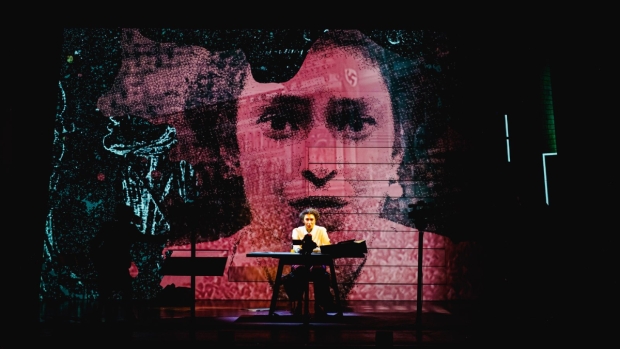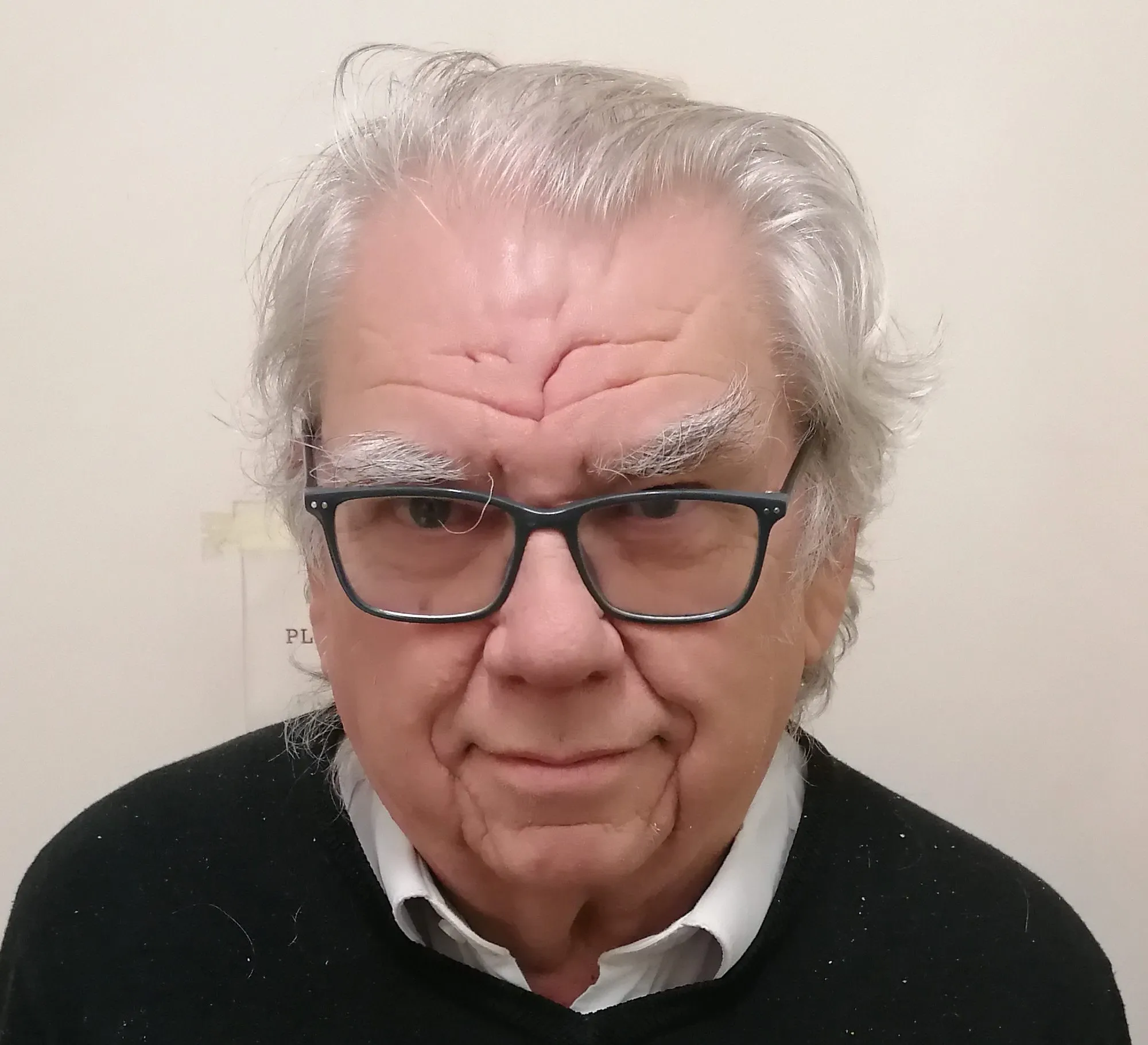Dracula: The Untold Story at Leeds Playhouse – review
imitating the dog take on the myth of the iconic vampire

© Ed Waring
Dracula: The Unknown Story, by imitating the dog, beginning a long tour at co-producers Leeds Playhouse, is all about alternatives. It offers an alternative view of the death and after-life of Dracula, an alternative counter-factual view of 20th century history and a totally exhilarating alternative approach to theatre.
On New Year's Eve 1965 a particularly gruesome murder is committed in London. A young woman comes to a police station with information; in fact, the information turns out to be that she is the murderer. She also claims to be Mina Harker, wife of the man who hunted down and killed Dracula, which would make her about 90. The police questioning her are duly sceptical, especially when she launches into an account of her adventures: she it was who killed Dracula and she has since been a traveller throughout Europe. In Paris she models for Picasso and appears in Georges Melies' fantasy films. Then she starts killing people.
That's where the counter-factual comes in. Her victims are men (or even male children) to whom her dreams have directed her for the evil they will do: she has not killed Dracula so much as released him into the world. It's when an Italian revolutionary in Switzerland gives his name as Benito Mussolini that we realise something strange is going on: this is re-writing history. And the occasional broadcast news contains bizarre facts such as Joe McCarthy as President of the United States.
However, the production style, much more than the content, makes this a compelling piece of theatre. Based on the form of a graphic novel, it plays constant visual tricks on the screens at the back of the set, but it's the integration of live action with the images that takes the breath away.
Stage furniture is minimal, a table, a few chairs and (most essential) a couple of cameras. Mina (Riana Duce), WPC Williams (Adela Rajnovic) and DS Donaldson (Matt Prendergast) sit and the questioning begins. Soon they are thrust into the story. Mina merges into an upstairs floor of the Harker town-house or a train crossing Europe, Rajnovic and Donaldson's moving, speaking faces are imposed on images of, for instance, Stalin and his wife, then the two bend to a suitable degree for a high-angle shot of the police in the canteen (lovely steaming cup of tea!). All three speak apparently flawless French or Italian, German or Russian, as Mina careers through Europe, the English version appearing in speech bubbles. Dracula never appears in bodily form, but his menacing shadow, voiced by an eerie combination of Rajnovic and Prendergast, produces the odd frisson of terror.
After all, though, it's not the terror, but the sheer chutzpah of the whole enterprise that gets you. It's impossible to list all the designers of sound, lighting, video, models and everything else under the direction of joint writer/directors Andrew Quick and Peter Brooks, video designer Simon Wainwright and designer Laura Hopkins, but it all gels seamlessly.
Riana Duce is remarkable as Mina, delicately demure, passionate, aggressive, deeply troubled, flinging herself into scenes of violent action without losing her cut-glass accent (in whatever language she's speaking). Adela Rajnovic and Matt Prendergast neatly establish the differences between the constable, curious as to what this is all about, and the detective sergeant, pragmatic and sceptical, and the variety and precision of their all their work is highly impressive. This is a production where hitting your mark is as important as on any film set.












